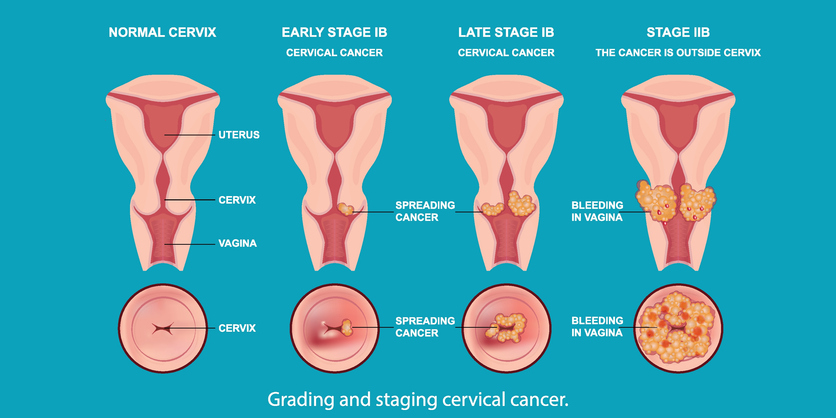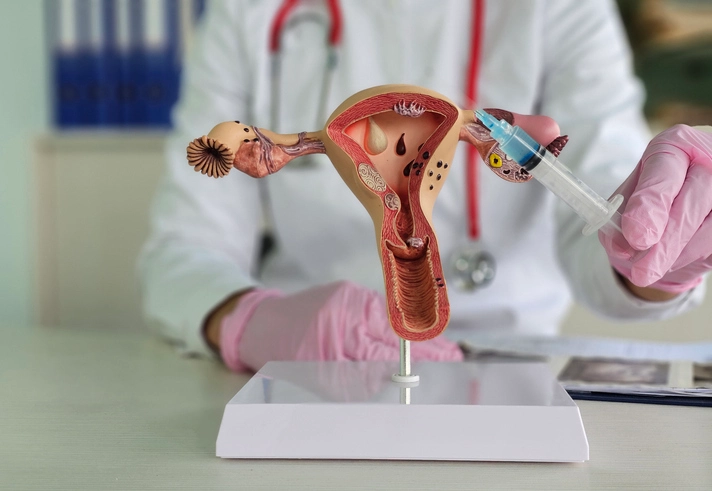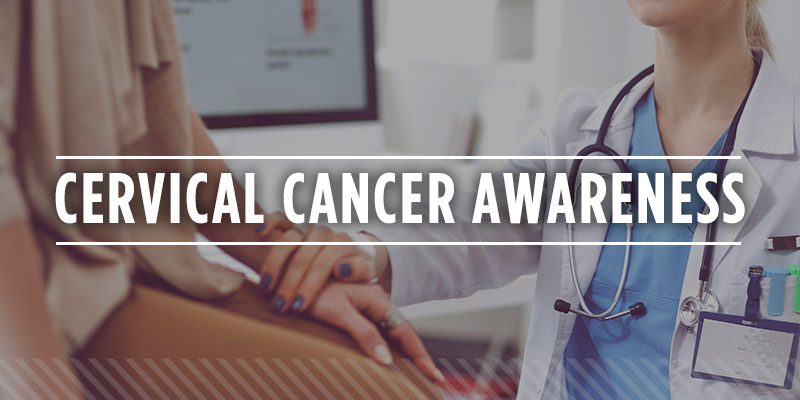Approximately 13,000 women are diagnosed with cervical cancer every year. While formerly the most common cause of cancer deaths in women, cervical cancer deaths have been steadily on the decline, thanks in part to awareness about the disease and screening. Learn more about cervical cancer and prevention during cervical cancer awareness month, and make sure people you care about are getting screened!
What is Cervical Cancer?
Cancer is a disease in which the cells in a certain area of the body mutate and begin multiplying out of control without dying when they are supposed to. These rapidly multiplying cells form a mass, called a tumor, and can spread to other parts of the body.

Cervical cancer, therefore, is rapidly multiplying cells of the cervix, located in the female reproductive system at the opening of the uterus.

What causes Cervical Cancer?
While it is not clear specifically what causes cervical cancer, 91% of cases are attributed to HPV – or Human Papillomavirus, a sexually transmitted disease. HPV is estimated to be the most common STD in the US, with approximately 80% of women contracting the virus by age 50.
However, most women with HPV do not develop cervical cancer. 80-90% of HPV infections are naturally eliminated by the body and do not cause cancer.

Is cervical cancer preventable?
Cervical cancer is the 4th most common cancer in women. And while cervical cancer was the leading cause of cancer deaths in women 40 years ago, it is one of the most preventable types of cancer, and deaths have decreased significantly.
The steady decline in deaths from cervical cancer are attributed to regular Pap testing (or Pap smears), which can find precancerous cells. In addition, the development of a vaccine for HPV (released in 2006) helps to prevent the types of HPV linked to 90% of cervical cancer cases. Between 2007-2010, HPV infection rates among females 14-19 fell by 56%.
To prevent cervical cancer, current guidelines call for Pap tests starting at age 21. At age 30, screening should include an HPV test with a Pap test every five years, or a Pap test alone every three years, or an HPV test alone every 5 years, potentially with additional recommended screenings, pending the results of testing. In addition, the HPV vaccine has been approved for both males and females ages 11 – 45.

